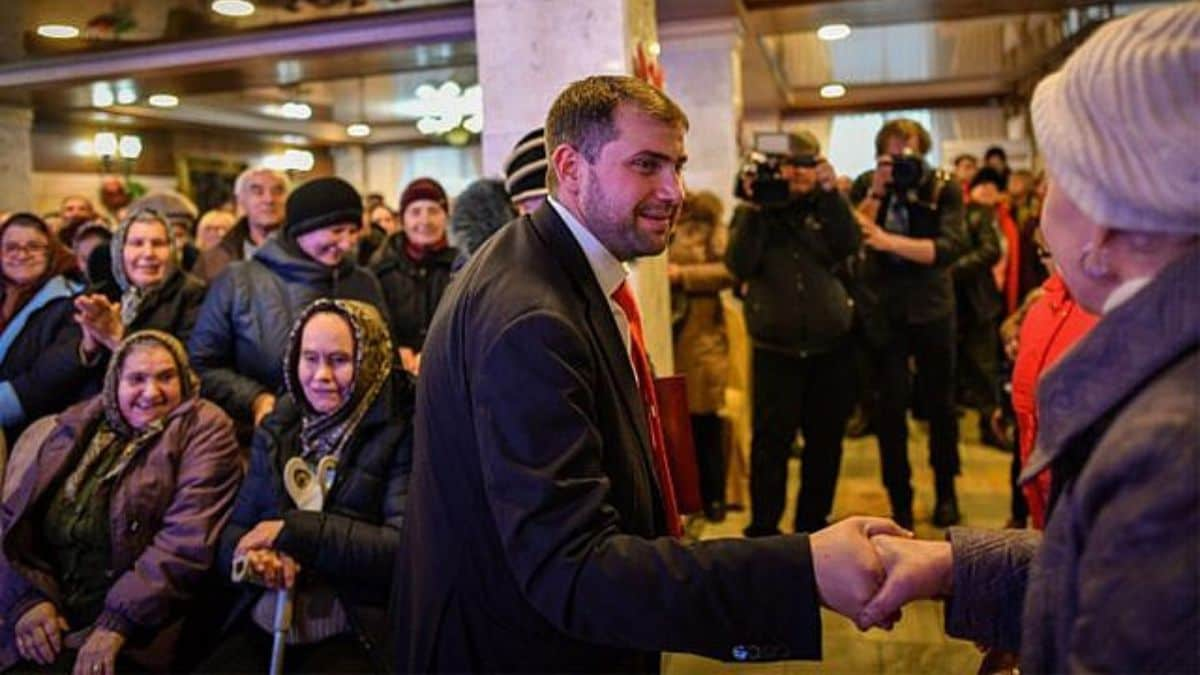Ilan Shor, a controversial oligarch born in Israel and raised in Moldova, has emerged as a central figure in allegations of Russian interference in
Moldova’s political landscape.
His connections to a multi-billion-dollar fraud and accusations of electoral meddling have made him a key player in Moldova’s ongoing struggle between European integration and Russian influence.
Who is Ilan Shor?
Ilan Shor was born on March 6, 1987, in Tel Aviv, Israel, but his family relocated to Moldova in the 1990s. His father, Miron Shor, was a prominent businessman with interests in duty-free retail and other sectors.
Following his father’s death in 2005, Shor, then just 18, inherited the family business, ShorHolding, and quickly expanded its operations. He acquired assets such as television stations, an insurance company, and the Moldovan football club FC Milsami Orhei.
Shor’s rise in Moldova’s business circles laid the groundwork for his eventual involvement in politics. However, his ambitions would soon be overshadowed by one of the largest financial scandals in Moldovan history — the 2014 theft of $1 billion from the country’s banking system, a case that would forever change his public image.
Why is Ilan Shor infamous?
In 2014, Moldova’s banking system was rocked by what is now infamously known as the “theft of the century.” Shor, who was the president of Banca de Economii, was heavily implicated in the embezzlement of $1 billion, approximately 12 per cent of Moldova’s GDP, siphoned from three Moldovan banks.
Shor’s involvement in this scandal led to his sentencing in June 2017, when he received a 7.5-year prison sentence for fraud. Despite this conviction, Shor managed to avoid serving his sentence, remaining under house arrest while awaiting appeal.
In 2019, Shor fled to Israel while still under house arrest, evading justice in Moldova. Media reports indicate that Shor now resides in Russia, where he reportedly obtained citizenship in 2023.
Meanwhile, in 2023, a Moldovan appeals court doubled his sentence in absentia, increasing his jail term to 15 years and freezing all his assets.
What is Ilan Shor’s role in Moldova?
Despite his criminal record, Shor’s political influence grew in Moldova. In 2015, he was elected mayor of the small town of Orhei, situated about 40 kilometers from Moldova’s capital, Chisinau.
Remarkably, the banking fraud scandal did little to dent his local popularity, and Shor continued to climb the political ladder.
In 2019, Shor was elected to the Moldovan Parliament, and he was re-elected in 2021, although he never attended parliamentary sessions. His popularity remained significant, regularly ranking him among the top four politicians in Moldova, according to opinion polls.
Also Watch:
However, by 2023, Shor’s political fortunes took a sharp downturn when his party was banned for alleged “malign influence campaigns” aimed at supporting Russian interests.
Moldovan President Maia Sandu’s government took stringent measures against Shor, accusing him of orchestrating efforts to undermine Moldova’s pro-European trajectory.
What are the current allegations against Ilan Shor?
Shor’s most recent controversies stem from allegations of election interference. The Moldovan Security and Intelligence Service (SIS) has accused Shor of playing a pivotal role in Russian-backed efforts to derail Moldova’s European Union (EU) integration.
These efforts, according to Moldovan authorities, began in earnest in mid-2022 and involved the funneling of 1 billion Moldovan lei ($56.4 million) into the country to sway public opinion in favour of pro-Russian political forces.
In the lead-up to the 2023 local elections, Moldova’s government barred Shor’s newly formed Chance Party from participating due to national security concerns. The authorities claimed that the party had received undeclared foreign funds to bribe voters and manipulate public opinion.
Moldovan anti-corruption prosecutors also revealed that more than $15 million in Russian funds had been funnelled into the accounts of over 130,000 Moldovan citizens.
These accusations have been fiercely denied by Shor, who continues to paint himself as a victim of political persecution. He has used social media platforms, particularly Telegram, to rally support against Moldova’s EU aspirations and to criticise the leadership of Sandu.
“For four years, we have been following the path of so-called European integration. Sandu, where are the results? Against high inflation, wages remain shamefully low and pensions are meagre,” Shor stated in July this year.
Where is Moldova in its struggle for European integration?
Moldova’s trajectory towards EU membership has been fraught with obstacles, with Russian interference being one of the most significant.
A referendum and presidential election took place on Sunday, both of which were clouded by allegations of Russian-backed meddling. A slim majority of 50.46 per cent of Moldovans voted in favor of EU accession, a result celebrated by pro-European forces but marred by accusations of vote-buying and manipulation.
Moldova’s incumbent President and presidential candidate Maia Sandu speaks with journalists after walking out of a polling station, as the country holds a presidential election and a referendum on joining the European Union, in Chisinau, Moldova, October 20, 2024. File Image/Reuters
Sandu denounced the foreign interference, stating, “Criminal groups… have attacked our country with tens of millions of euros, lies, and propaganda, using the most disgraceful means to keep our citizens and our nation trapped in uncertainty and instability.”
The Kremlin, however, denied any involvement and challenged Sandu to present evidence of the alleged interference. “Present the evidence,” a Kremlin spokesperson said in response.
International observers, including the Organisation for Security and Co-operation in Europe (OSCE), confirmed that the election campaigns were significantly impacted by foreign interference and disinformation.
John Kirby, the White House national security spokesperson, echoed these concerns, saying, “Russia did not succeed, as the results demonstrate. Moldovan democracy is strong.”
With inputs from agencies
